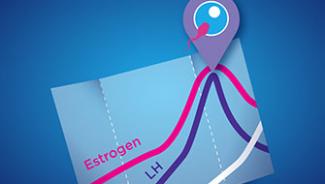How to prepare your body for pregnancy: 12 tips and the science behind them

If you’re trying to conceive now or in the near future, you’re likely hyperaware of health advice tied to conception and pregnancy. You probably already know many of the important things to do when you start trying to conceive (TTC). But what about all those preconception health “suggestions” you hear about vitamins, exercise, eating fish and drinking coffee?
Between tips from the internet, friends, books and family, filtering out the best — and most accurate — overall health advice for preconception can be tough. Here we’ll dig into some of the suggestions you may have heard about “getting healthy” before TTC or getting pregnant, and how the science behind them can help you get ready for pregnancy (with your doctor’s support, of course).
In this article
- 1. Start taking a prenatal vitamin before TTC — especially one with folic acid.
- 2. Talk to your doctor about medications and vaccinations.
- 3. It’s OK to drink coffee when you’re trying to get pregnant (but it might be time to drink less).
- 4. Getting into an exercise routine now could help make your pregnancy easier.
- 5. Training your pelvic-floor muscles before pregnancy can be beneficial.
- 6. Good oral hygiene now can help lower the risk of dental problems during pregnancy.
- 7. Talk to your doctor about your body weight as you prepare for pregnancy.
- 8. It’s best to avoid eating fish high in mercury if you’re trying to conceive.
- 9. Consider switching to a fertility-friendly lubricant while TTC.
- 10. As you age, preparing your body for pregnancy stays (mostly) the same.
- 11. Limiting your alcohol intake before you get pregnant really is a good idea.
- 12. If you smoke, now is a perfect time to stop.
- Related blog articles
1. Start taking a prenatal vitamin before TTC — especially one with folic acid.
According to the CDC, folic acid is a powerful tool to prevent neural tube defects such as anencephaly and spina bifida.1 The CDC recommends that anyone who could conceive (whether they’re trying or not) take a supplement of 400 mcg of folic acid every day.1 While folic acid is added to some foods (think enriched cereals, pastas, rice and breads), you can also find folate in beans, peas, oranges, broccoli, asparagus and dark leafy green vegetables.1 The easiest way to make sure you’re getting enough is to do both: Eat a diet rich in folic acid, and take a daily vitamin with 400 mcg in it.1 Talk to a healthcare provider about whether you might need more than 400 mcg daily (for example, if your family has a history of neural defects).
And if you’re planning on becoming pregnant anytime soon? Ask your doctor if you can start taking a prenatal vitamin now.2 In addition to folic acid, it contains all the other recommended vitamins and minerals you need before, during and after your pregnancy.2 According to The American College of Obstetricians and Gynecologists (ACOG), taking a prenatal vitamin before your pregnancy may also reduce nausea and vomiting.2
2. Talk to your doctor about medications and vaccinations.
It’s true what they say: It’s always a good idea to talk over choices about medicine and shots with your doctor. And definitely a good idea when TTC!
Whatever medications you take — prescription, over-the-counter drugs or even vitamins and supplements — talk to your doctor about how they could impact TTC and pregnancy, and plan to make any changes needed.3 It’s also a great opportunity to talk to them about getting off birth control and how your body might respond to the change, especially if you’re using a form of birth control provided by your doctor (like birth control pills or an IUD, for example).
Vaccinations are also important to track, so now’s a good time to locate your vaccination records and check that you’re up to date on your shots, including the measles-mumps-rubella (MMR) vaccine.4
3. It’s OK to drink coffee when you’re trying to get pregnant (but it might be time to drink less).
“Should I stop drinking coffee when trying to get pregnant?” is one of the first questions people ask about TTC. The good news: While ACOG does recommend reducing caffeine consumption during pregnancy, there isn’t data to suggest you have to completely give up coffee while TTC.
A 2020 review of clinical studies of nearly 13,000 participants showed low-quality evidence that various levels of caffeine consumption may not increase the risk of infertility.5 (“Low-quality” simply means more case-controlled studies are needed for future review.) More research is needed to confirm these findings, but the data indicates that moderate caffeine intake is alright when TTC.
While there’s no need to stop drinking caffeinated beverages when TTC, depending on your daily habit, you may have to decrease the amount you consume during pregnancy. That makes pre-pregnancy a great time to assess how much caffeine you tend to drink and consider cutting back if needed. The ACOG agrees with current research suggesting moderate caffeine intake while pregnant does not cause miscarriage or preterm birth.6
So, what’s moderate? ACOG recommends less than 200 milligrams per day, which is about one 12-ounce cup of coffee.6 But as always, it’s a good idea to talk to your doctor about the ideal amount for you.
4. Getting into an exercise routine now could help make your pregnancy easier.
ACOG recommends exercising while trying to conceive, as well as during and after your pregnancy, although some modifications during pregnancy may be required.7 Talk to your doctor to develop an exercise routine that’s best for you. Observational studies have shown that being physically active pre-pregnancy can result in health benefits while pregnant and afterward, including decreased likelihood of gestational diabetes, cesarean births and postpartum depression.7
The pre-pregnancy period is actually an ideal time to embrace healthier routines!7 Has it been a while since you’ve gotten your heart rate up? Strive for at least 150 minutes of moderate-intensity aerobic activity per week; that’s the amount of exercise recommended by the latest U.S. Department of Health and Human Services Physical Activity Guidelines during pregnancy.8
5. Training your pelvic-floor muscles before pregnancy can be beneficial.
If you’re thinking about getting pregnant in the near future, consider adding some pelvic floor- strengthening exercises to your routine. That way, you’ll already be in the habit of doing what will become a recommended exercise. Why? To reduce the chance of leaking pee during pregnancy.
According to a 2020 study, individuals who participated in a pelvic floor muscle training program while pregnant showed significantly reduced urinary incontinence.9 The National Association for Continence (NAFC) says pre-pregnancy is an ideal time to engage in exercises to improve your pelvic floor and core strength.10 According to their research, strong pelvic floor muscles can even help ease common pregnancy discomforts like urine leakage.10 As always, talk to your doctor before starting any new exercise or physical training program.
6. Good oral hygiene now can help lower the risk of dental problems during pregnancy.
Pregnancy can make you more susceptible to gum disease and cavities.11,12 According to the Centers for Disease Control and Prevention (CDC), gingivitis occurs in nearly 60 to 75% of those who are pregnant, possibly aggravated by changing hormones.11 Additionally, one in four women of childbearing age have untreated cavities.11 The American Dental Association (ADA) reports that those who are more prone to morning sickness may experience increased erosion on their teeth due to exposure to stomach acids.12 And according to the CDC, the bacteria that causes cavities while pregnant and after delivery can be transferred to your baby.11
So what can you do now to prevent all these problems in the future? Both the ADA and CDC recommend preventive care. Make a habit of practicing good oral hygiene now. If you haven’t seen a dentist in a while, make an appointment. And if you’ve been putting off getting that cavity filled, now’s the time to take care of it.
7. Talk to your doctor about your body weight as you prepare for pregnancy.
Determining what a healthy body weight is for you is a complex process, and one that you and your doctor should discuss. While maintaining a healthy body weight is generally recommended, studies show that the relationship between weight, fertility and pregnancy is complex. Let’s take a closer look.
Losing weight before pregnancy
Both ACOG and the American Society for Reproductive Medicine (ASRM) recommend losing weight if you’re overweight or obese before trying to conceive. Obesity may result in irregular menstrual cycles and ovulation, though even those who are ovulating regularly tend to have lower pregnancy rates than those in a normal BMI range.13 During pregnancy, obesity can put you at risk of high blood pressure, preeclampsia, gestational diabetes and obstructive sleep apnea.14 Losing weight pre-pregnancy is the best way to decrease these risks, and although ACOG encourages trying to reach a BMI in the normal range before attempting pregnancy,15 even losing a small amount of weight can be helpful.14
A 2018 study looked at obesity’s relationship to fertility and found that for obese women, weight loss programs that focused on lifestyle changes helped restore menstrual cycle regularity and ovulation, ultimately improving the odds of conceiving.16 However, this same study noted that postponing fertility treatment to lose weight could lead to trying to conceive at a later age, which also has a negative effect on fertility.16 Interestingly, a 2020 study showed that an intensive lifestyle intervention for weight loss did not improve fertility or birth outcomes.17
Gaining weight before pregnancy
If you are underweight, your body can stop making estrogen.18 This can lead to irregular menstrual cycles or anovulation (when your body doesn’t ovulate).18 The Office on Women’s Health says this sometimes happens in those who exercise excessively or have an eating disorder.18 In addition to causing issues with conceiving, being underweight may increase the risk of your baby having a low birth weight.2
So what does all this mean for you? If you’re thinking about losing or gaining weight, talk to a healthcare provider about your plans for getting pregnant first. Lots of factors can influence your body weight, including your exercise and eating habits, and your doctor is in the best position to give you healthy goals and actionable advice.
8. It’s best to avoid eating fish high in mercury if you’re trying to conceive.
Several foods should be avoided during pregnancy, and guidance around fish is one area you should take seriously — even before conceiving. The U.S. Food & Drug Administration (FDA) recently updated its advice about eating fish (including shellfish) for those who might become or are pregnant: While eating fish during pregnancy is recommended, they advise consuming 8 to 12 ounces per week from a variety of sources that are lower in mercury.19 Which fish are those? The FDA's chart on eating fish for those who might become or are pregnant provides information about which fish are safer to consume and which are best to avoid based on their mercury levels. Fish to avoid include king mackerel, marlin, orange roughy, shark, swordfish, tilefish and tuna.20
But if there are serious risks related to mercury in fish, why would the FDA recommend eating fish during pregnancy at all? Fish can provide important nutrients such as omega-3 and omega-6 fats, iron, iodine and choline.19 According to the FDA, choline helps support the development of the baby’s spinal cord, and iron and iodine boost the baby’s immune system.19 Eating fish also supports a baby’s brain development.19
9. Consider switching to a fertility-friendly lubricant while TTC.
According to ASRM, some vaginal lubricants can affect sperm health in vitro.21 If you’re considering using a lubricant and want to be sure it’s conducive to conception, look for the FDA’s special classification (PEB) for fertility-friendly lubricants. To receive a PEB product code, a lubricant must be compatible with sperm, oocytes and embryos.22 You can find an FDA-approved list of fertility-friendly lubricants here.23
10. As you age, preparing your body for pregnancy stays (mostly) the same.
Pregnancy occurs the same way whether you’re 22 or 38, and preconception health guidelines stay generally the same for everyone “of childbearing age.” But it is worth remembering that your chances of getting pregnant do decrease with age. The pre- pregnancy prep work comes in the form of knowledge. It’s important that you know how to identify your most fertile days and when you ovulate. It’s also important to understand when your fertility will begin to decline.
How to prepare for pregnancy after 30
All the things you would do to prepare your body for pregnancy in your 20s, you should still do if you’re trying to get pregnant in your 30s. Some factors around your reproductive health will likely shift in your 30s — for example your PMS symptoms may worsen,24 and uterine fibroids and endometriosis (both of which are factors that can impact fertility ) are more common in this age group.25
Fertility does typically start to decline as you get older,26 so know that it may take longer to conceive after age 35, or may involve some additional steps to support your fertility. If you’re over 35 and have been trying to get pregnant for six months or more, talk to your doctor.
How to prepare for pregnancy after 40
Fertility continues to decline in your 40s,26 but pre-pregnancy health advice is the same as before. Your menstrual cycle may change as you get older, and perimenopause typically begins in your 40s.27
Both of these factors can contribute to lower fertility in your 40s, but pregnancy is still possible. If you’ve decided to try to get pregnant in your 40s, talking to your doctor is a great first step — make an appointment right away to discuss your options.
11. Limiting your alcohol intake before you get pregnant really is a good idea.
According to the CDC, there is no known safe amount of alcohol to consume when you are trying to get pregnant.28 Additionally, according to a 2021 study in “Human Reproduction,” moderate (three to six drinks per week) and heavy drinking (more than six drinks per week) during the luteal phase, and heavy drinking during the ovulatory window, could affect your chances of conception.29
With that evidence in mind, we recommend going alcohol-free while trying to conceive and during pregnancy. If getting drinks is part of your everyday life, changing that habit could be as easy as switching to mocktails or as tough as telling coworkers you’re skipping happy hour, again, without starting any awkward conversations about pregnancy. Remember, you don’t have to go it alone! Your close friends, family and doctor can help you navigate the shift with resources, tools and emotional support.
Speaking of changes that might take a little extra help...
12. If you smoke, now is a perfect time to stop.
According to the FDA, smoking can reduce your fertility, harm your reproductive system, damage the DNA in sperm and may negatively affect your hormone production.30 They recommend that if you — or someone you love — are trying to get pregnant, you should start working to quit now.30
Even if you’ve tried to quit before, preparing to get pregnant is an opportunity to try again. And like we said before, getting support can make a big difference when you’re looking to make a change. The CDC has a wealth of resources on how to quit smoking,31 and your doctor can give you specific recommendations to help you quit.
Remember that every body is different. One of the most important pre-pregnancy steps you can take is to talk to your healthcare provider. They can help you create a personalized plan as you prepare to embark on this exciting journey.
Related blog articles
Sources :
-
Centers for Disease Control and Prevention. Folic acid: the best tool to prevent neural tube defects. Updated September 9, 2022. Accessed January 17, 2023. https://www.cdc.gov/ncbddd/folicacid/features/folic-acid-helps-prevent-some-birth- defects.html
-
The American College of Obstetricians and Gynecologists. Good health before pregnancy: prepregnancy care. Updated December 2021. Accessed January 17, 2023. https://www.acog.org/womens-health/faqs/good-health-before-pregnancy-prepregnancy-care
-
Centers for Disease Control and Prevention. Pregnant or thinking of getting pregnant? Updated September 20, 2022. Accessed January 17, 2023. https://www.cdc.gov/pregnancy/meds/treatingfortwo/facts.html
-
Centers for Disease Control and Prevention. Vaccines before pregnancy. Updated November 9, 2021. Accessed January 17, 2023. https://www.cdc.gov/vaccines/pregnancy/vacc-before.html
-
Bu FL, Feng X, Yang XY, Ren J, Cao HJ. Relationship between caffeine intake and infertility: a systematic review of controlled clinical studies. BMC Women's Health. 2020;20(1):125. doi: 10.1186/s12905-020-00973-z. Accessed January 17, 2023. https://doi.org/10.1186/s12905-020- 00973-z
-
The American College of Obstetricians and Gynecologists. How much coffee can I drink while I’m pregnant? Updated October 2020. Accessed January 17, 2023. https://www.acog.org/womens- health/experts-and-stories/ask-acog/how-much-coffee-can-i-drink-while-pregnant
-
The American College of Obstetricians and Gynecologists. Physical activity and exercise during pregnancy and the postpartum period: committee opinion. Updated April 2020. Accessed January 17, 2023. https://www.acog.org/clinical/clinical-guidance/committee- opinion/articles/2020/04/physical-activity-and-exercise-during-pregnancy-and-the-postpartum- period
-
U.S. Department of Health and Human Services. Physical activity guidelines for Americans, 2nd edition. 2018. Accessed January 17, 2023. https://health.gov/sites/default/files/2019 09/Physical_Activity_Guidelines_2nd_edition.pdf
-
Woodley SJ, Lawrenson P, Boyle R, et al. Pelvic floor muscle training for preventing and treating urinary and faecal incontinence in antenatal and postnatal women. Cochrane Database Syst Rev. 2020;5(5):CD007471. doi: 10.1002/14651858.CD007471.pub4. Accessed January 17, 2023. https://www.ncbi.nlm.nih.gov/pmc/articles/PMC7203602
-
National Association for Continence. 4 moves to strengthen your pelvic floor before getting pregnant. Accessed January 17, 2023. https://nafc.org/bhealth-blog/4-moves-to-strengthen- your-pelvic-floor-before-getting-pregnant/
-
Centers for Disease Control and Prevention. Pregnancy and oral health. Updated March 18, 2022. Accessed January 17, 2023. https://www.cdc.gov/oralhealth/publications/features/pregnancy-and-oral-health.html
-
American Dental Association. Pregnancy. Updated May 4, 2021. Accessed January 17, 2023. https://www.ada.org/resources/research/science-and-research-institute/oral-health- topics/pregnancy
-
American Society for Reproductive Medicine. Weight and fertility. Updated 2015. Accessed January 17, 2023. https://www.reproductivefacts.org/news-and-publications/patient-fact- sheets-and-booklets/documents/fact-sheets-and-info-booklets/weight-and-fertility/
-
The American College of Obstetricians and Gynecologists. Obesity and pregnancy. Updated January 2023. Accessed January 17, 2023. https://www.acog.org/womens-health/faqs/obesity- and-pregnancy
-
The American College of Obstetricians and Gynecologists. Prepregnancy counseling: committee opinion. Updated 2020. Accessed January 17, 2023. https://www.acog.org/clinical/clinical- guidance/committee-opinion/articles/2019/01/prepregnancy-counseling
-
Silvestris E, de Pergola G, Rosania R, Loverro G. Obesity as disruptor of the female fertility. Reproductive Biology and Endocrinology. 2018;16(1)1-13. doi: 10.1186/s12958-018-0336-z Accessed January 17, 2023. https://rbej.biomedcentral.com/articles/10.1186/s12958-018-0336- z
-
Legro RS, Hansen KR, Diamond, MP, et al. Effects of preconception lifestyle intervention in infertile women with obesity: the FIT-PLESE randomized controlled trial. PLoS Med. 2022;19(1):e1003883. Accessed January 17, 2023.https://journals.plos.org/plosmedicine/article?id=10.1371/journal.pmed.1003883
-
Office on Women’s Health, U.S. Department of Health & Human Services. Weight, fertility, and pregnancy. Updated February 17, 2021. Accessed January 17, 2023. https://www.womenshealth.gov/healthy-weight/weight-fertility-and-pregnancy
-
U.S. Food & Drug Administration. Advice about eating fish. Updated September 28, 2022. Accessed January 17, 2023. https://www.fda.gov/food/consumers/advice-about-eating-fish
-
U.S. Food & Drug Administration. Advice about eating fish. Updated October 2021. Accessed January 17, 2023. https://www.fda.gov/media/102331/download
-
he American Society for Reproductive Medicine. Optimizing natural fertility: a committee opinion. Updated January 2022. Accessed January 17, 2023. https://www.asrm.org/globalassets/asrm/asrm-content/news-and-publications/practice- guidelines/for-non-members/optimizing_natural_fertility.pdf
-
U.S. Food & Drug Administration. Product classification: lubricant, personal, gamete, fertilization, and embryo compatible. Updated January 16, 2023. Accessed January 17, 2023.https://www.accessdata.fda.gov/scripts/cdrh/cfdocs/cfpcd/classification.cfm?id=peb
-
U.S. Food & Drug Administration. 510(k) premarket notification: PEB. Updated January 16, 2023. Accessed January 17, 2023. https://www.accessdata.fda.gov/scripts/cdrh/cfdocs/cfpmn/pmn.cfm?start_search=1&Product Code=PEB
-
Office on Women’s Health, U.S. Department of Health & Human Services. Premenstrual syndrome (PMS). Updated February 22, 2021. Accessed January 17, 2023. https://www.womenshealth.gov/menstrual-cycle/premenstrual-syndrome
-
The American College of Obstetricians and Gynecologists. Uterine fibroids. Updated July 2022. Accessed January 17, 2023. https://www.acog.org/womens-health/faqs/uterine-fibroids
-
The American College of Obstetricians and Gynecologists. Pregnancy at age 35 years or older: obstetric care consensus. Updated August 2022. Accessed January 17, 2023.https://www.acog.org/clinical/clinical-guidance/obstetric-care-consensus/articles/2022/08/pregnancy-at-age-35-years-or-older
-
The American College of Obstetricians and Gynecologists. Perimenopausal bleeding and bleeding after menopause. Updated August 2022. Accessed January 17, 2023. https://www.acog.org/womens-health/faqs/perimenopausal-bleeding-and-bleeding-after- menopause
-
Centers for Disease Control and Prevention. Alcohol and pregnancy questions and answers. Updated November 14, 2022. Accessed January 17, 2023. https://www.cdc.gov/ncbddd/fasd/faqs.html
-
Anwar MY, Marcus M, Taylor KC. The association between alcohol intake and fecundability during menstrual cycle phases. Hum Reprod. 2021;36(9):2538–2548. doi: 10.1093/humrep/deab121. Accessed January 17, 2023.https://academic.oup.com/humrep/article/36/9/2538/6294415
-
U.S. Food & Drug Administration. How smoking affects reproductive health. Updated November 9, 2021. Accessed January 17, 2023. https://www.fda.gov/tobacco-products/health-effects- tobacco-use/how-smoking-affects-reproductive-health
-
Centers for Disease Control and Prevention. How to quit smoking. Updated February 28, 2022. Accessed January 17, 2023. https://www.cdc.gov/tobacco/campaign/tips/quit-smoking/

Can I get pregnant if I'm over 35?
If you’re over 35 you may need a little more patience and greater understanding about your fertility window to help you have a baby naturally.

How to get pregnant faster
There are a few key things you need to know if you want to maximise your chances of getting pregnant.




